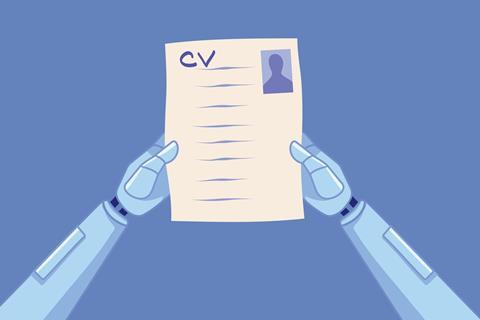From exploring career options to mastering interviews

Using the latest technology is always exciting, and nothing excites more strong emotions than AI right now. But AI, and especially generative AI, is neither the answer to every question, nor the end of the world as we know it. When used properly, there are many ways this new tool can open new career vistas and enhance your professional portfolio.
Set your direction
AI is great at generating ideas, which is especially useful if you are exploring career options.
You can ask generative AI chatbots like ChatGPT, Microsoft CoPilot and Gemini to suggest career paths with a prompt such as:
‘I will be graduating with a PhD in chemistry in two years. My research is novel synthetic methods for natural products. In my spare time, I sell crafts on Etsy. What would be a good career path for me?’
You will get a list of options, including traditional chemistry/pharma paths, interdisciplinary careers, entrepreneurial or creative options, and even hybrid paths. You can continue to refine your answers by providing more information or asking for ideas on how to explore the options that interest you, and have the AI create a detailed plan with specific strategies, actions and deadlines to prepare yourself for a particular path.
If you want a clean slate to start exploring in a completely new direction, just start a fresh chat.
Polish your paperwork
Once you have identified your goal, AI can help polish your materials and tailor them to a specific job or field. AI tools can compare your résumé with a job description, looking at keywords, skill frequency and the overall content to highlight your most relevant skills that will make you a competitive candidate for that position. It can also smooth your language, and identify gaps between your listed skills and the employer’s needs. Jobscan.co is a tool that has been around for over a decade to do just this, while Resume.io and Zety are newer tools.
Remember that AI does exactly what you ask it to do – for example, it may add missing skills from a job description to your résumé whether you have them or not. To avoid this, ask the AI tool to tell you what is missing, then decide if you can legitimately add the suggestions. Do not ask it to edit your documents directly. AI may miss nuances or misinterpret jargon, so always double check anything it produces.
Pretty up your picture
There are several AI tools that can be used to clean up images (see turing.com/resources/generative-ai-tools for a list), and thus create a professional profile picture from a selfie that would otherwise not be acceptable. Many of them can blur the background, smooth skin, remove flyaway hair and maybe even give you a haircut.
Find people
AI can help you search for people or companies that might be worth further investigation. You can ask for job titles of those who would hire for the role you are considering, recruiters in that field, or companies to explore. Once you identify an individual with whom you’d like to connect, AI can help you draft an initial connection request in the tone and length you specify, or even draft a full elevator speech.
Interview preparation
Some organisations are now using AI to conduct interviews and AI-generated summaries to rank candidates. AI can also help on your side of the interview table. In addition to asking it about trends affecting companies and industries, AI can generate potential interview questions and evaluate your answers to them. You can ask AI how to answer a particular question given the information on your resume, or after the interview ask it to write a first draft of a thank you note (given what you talked to the interviewer about).
Conclusions
Generative AI predicts based on word usage patterns – it does not understand language. The best way to use it is to write detailed prompts asking clear and specific questions. Tell it exactly what you want (type of document, length, tone, style, quality, audience, exclusions, purpose…). You can also ask the AI to take on a certain role – ‘Acting as a career coach’ or ‘Acting as a hiring manager’, for example.
Always carefully check the output. Any AI tool will only be as good as its training data, so look for answers based on old or biased data. This also means that anything you enter may become part of the new training set, so don’t enter any information that you would not want to become public.
Ultimately, AI tools can help you set your career path and present the best possible version of yourself. Using AI to enhance your career development materials will not only give you better materials, but will also give you experience in using these tools – which may be a job skill itself.












No comments yet